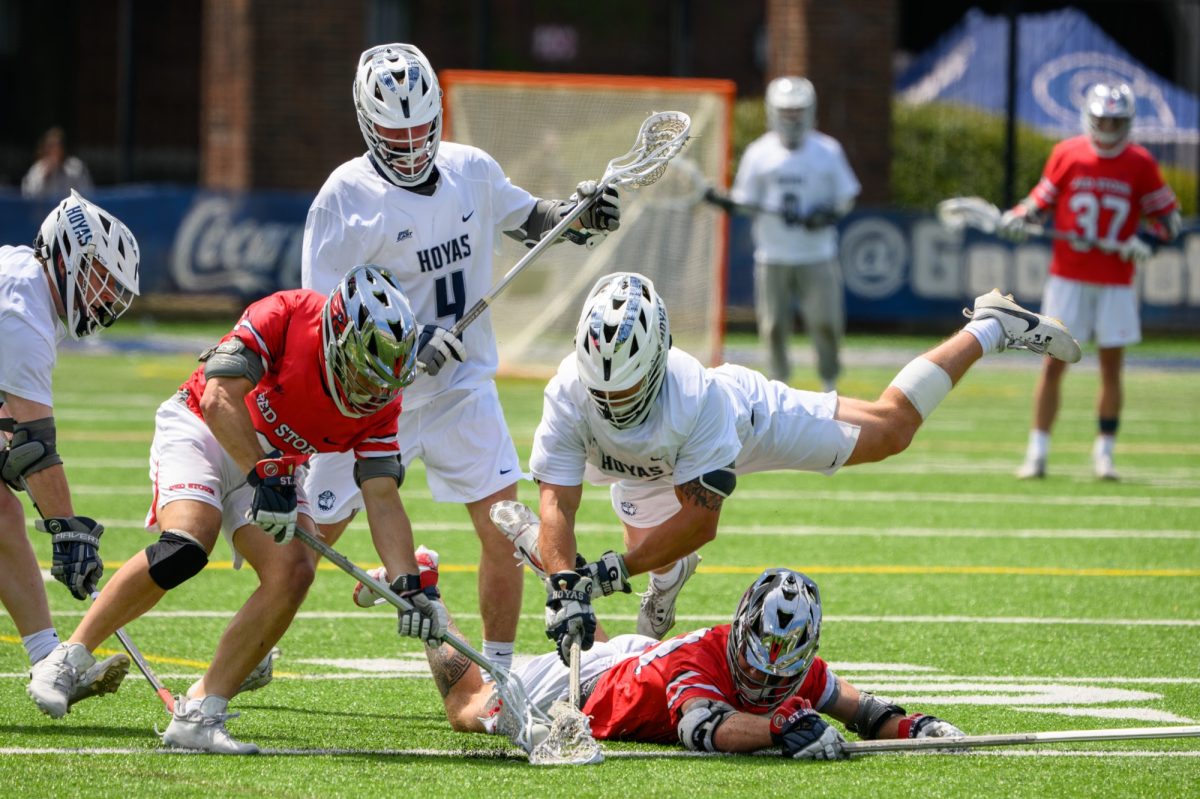On Nov. 12, the Kosovo national soccer team lost 0-2 in a World Cup qualifying match against Turkey, dropping the team’s World Cup qualification record to 0-1-3. Kosovo now sits in last place in its qualifying group behind five other teams, including Croatia, Ukraine and Iceland. Barring a miracle, Kosovo will fail to qualify for the 2020 World Cup.
Many teams would view that 0-1-3 record as a failure. The fact that Kosovo is even competing for a spot, however, stands as a victory of its own. After years of violent struggle for independence from Serbia, the former Yugoslav region has since taken its fight to international bodies in an attempt to gain recognition. It has not received a full place in the United Nations and only about half the world’s countries recognize Kosovo’s sovereignty.
FIFA and the European equivalent, the Union of European Football Associations, also refused to grant Kosovo’s teams the right to compete in international competitions, citing a clause in FIFA’s bylaws that states that a member must be “an independent state recognized by the international community.”
Then, in 2014, FIFA reversed its interpretation of Kosovo’s status as an independent state. It sanctioned international friendly matches for Kosovo, with the caveat that it could not play other former Yugoslav countries. Kosovo played Haiti to a 1-1 draw in its first match.
In May 2016, both UEFA and FIFA accepted Kosovo as a full member team, granting the team the opportunity to compete for a spot in international tournaments, including the World Cup.
The country’s journey to its first competitive international match, however, had just begun. Players must have citizenship in a country in order to represent it on the field. The issue of Kosovar citizenship is complicated at best.
The soccer world generally believes that a large number of players of Kosovar heritage with Albanian, Swiss or other citizenships would be allowed to play for the Kosovo team. Xherdan Shaqiri, Granit Xhaka and Valon Behrami are members of the Swiss national team whose families fled Kosovo. All three chose to stay with the Swiss.
Other players did make the switch. Midfielder Valon Berisha had 20 international appearances for Norway before playing for Kosovo and midfielder Milot Rashica, who previously played for Albania, switched to play for Kosovo.
On the day of its first qualifying match — an away fixture in Finland — Kosovo finally had permission to compete and a squad of professional players to field. But, instead of watching film and prepping players, Head Coach Albert Bunjaki had to wait for FIFA to finally approve the switch of players like Berisha and Rashica.
Months after giving Kosovo permission to play, FIFA had still not completed the paperwork needed to allow the team to play. It did not make its decisions until five hours before the game, when it announced that every player was eligible.
Kosovo drew the match against Finland 1-1. Berisha tied the match with a penalty kick, — the first competitive goal in his country’s history. Kosovo’s president was in the stands to witness the moment. Kosovo has lost every single match since the tie.
The creation of any new country comes with a huge array of problems. For every Velvet Divorce, there has been several violent splits. This is especially true in the Balkans, where Yugoslavia and later Serbia, fought to keep every piece of territory.
As much as sports serve as a distraction from the harsh realities of the world, they often are unfortunately intertwined with politics, especially on the international level.
When Serbia hosted Albania, a drone carrying a flag of “Greater Albania” appeared over the stadium during the match. It incited riots that prompted and armed police response and the cancellation of the match. Parts of the crowd chanted “kill, kill the Albanians.” The territory of “Greater Albania” in question includes Kosovo.
This is the environment that the Kosovo national team entered. Nevertheless, the people of Kosovo now have their own representation on the international football stage. FIFA may not be the UN, but after overcoming years of war and bureaucratic red tape, one should expect far more excitement in Pristina after the team’s first qualifying win than for any Security Council resolution.
Andrew May is a senior in the School of Foreign Service. The Front Runners is a shared column and appears every Tuesday.















